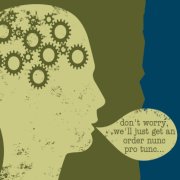Communications breakdowns: When a lawyer has no sense of time

In 2014 the broad category of communications accounted for about almost a third of claims reported and claims costs. We asked some lawyers to give their opinions on the various ways lawyer-client communications can break down, such as when lawyers fail to share information.
A few years ago, Judith Huddart, collaborative family lawyer at Dranoff and Huddart, Barristers and Solicitors had to visit the doctor.
She checked in, provided her health card and settled in with a book. Patients who came in after her came and went.
“I suddenly realized there was no one left in the waiting room. An hour had gone by and I was still sitting there. When I got up and looked around – which I probably should have done earlier – I realized there was no one around at all,” she says. The doctor had left and when she asked what happened, she was told she should have spoken up, and that she “got missed.” The experience left its mark.
“I felt like I was nothing,” she says. “I had no value, I wasn’t important. It was just ‘oh well, too bad for you, I have no sympathy for you.’ And I’ve never forgotten that.”
Waiting is inevitable in law. It may be months before a court date is set. Weeks can fly by before a discovery. Lawyers may understand this, but clients, who rarely have dealings with the legal system, may have no way to gauge timelines.
However, lawyers may want to remember the old FedEx slogan: “Waiting is frustrating, demoralizing, agonizing, aggravating, annoying, time-consuming and incredibly expensive.”
Some ways to make the waiting period less agonizing that Dilip Soman, professor of marketing and
communication strategy at the Rotman School of Business, suggests:
1. letting clients know a file has been received and is scheduled for appropriate action; and
2. providing an idea of how long – roughly – the whole process will take and what steps to expect.
The goal, he says, is to find a way to soothe the client’s inevitable anxiety.
He points to a recent study he conducted at a Canadian hospital of wait times to see an oncologist. There is a standard time lag of five to six weeks for someone with non-life threatening cancer to get a first appointment with a specialist. Soman and his team looked at ways hospitals can calm patients and make waiting a more pleasant experience.
“People felt anxious because they didn’t know if anyone had seen the files; in their eyes, this was a life-threatening event but the doctor’s office didn’t seem to think that was the case.”
The solution: have a nurse call patients as soon as the referral is received and the appointment date set, a step that used to take place a week before the appointment. As well as taking basic information (age, weight, height, etc.), the nurse now asks the patient if he or she has any questions. This is followed up with reminders about the upcoming appointment. By moving this call up in the process, the hospital gives the appearance that the patient is “in the system,” says Soman.
There’s a lesson in this for lawyers, says Soman. As a matter of good practice, clients should get prompt acknowledgement their file was being handled and then a timeline or estimation of how long a file would take to resolve. The reasoning behind the latter is simple, Soman says: “Anticipated waits are more bearable.”
People who have a sense of how long they will have to wait for their appointment will consistently rank their experience as more positive than those who aren’t told how long the wait will be.
“I recently worked with my lawyers on a real estate transaction,” Soman says. “They gave me a timeline and set out expectations – I got a flowchart. I loved it!”
Not all timelines are easy to predict, but even acknowledging it is difficult to determine the waiting time has a soothing effect on anxiety and dissatisfaction, Soman says. However, when timelines can’t be predicted, lawyers should check in regularly with clients, to let the client know the status of the matter or next steps (even if next steps are on hold because of delays or a pending event).
LAWPRO Executive Vice-President Duncan Gosnell adds that clients are able to plan their own lives better too: They do not need to keep the calendar open for possible unanticipated court dates.

Leave a Reply